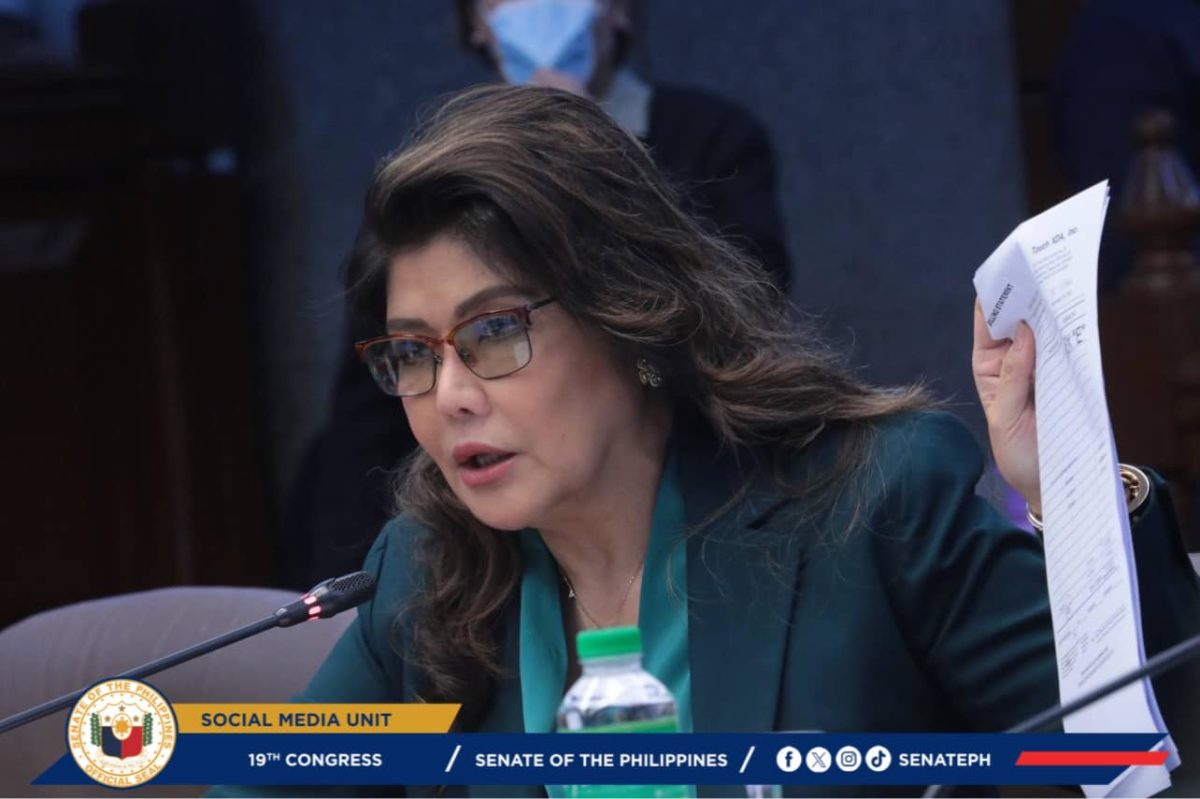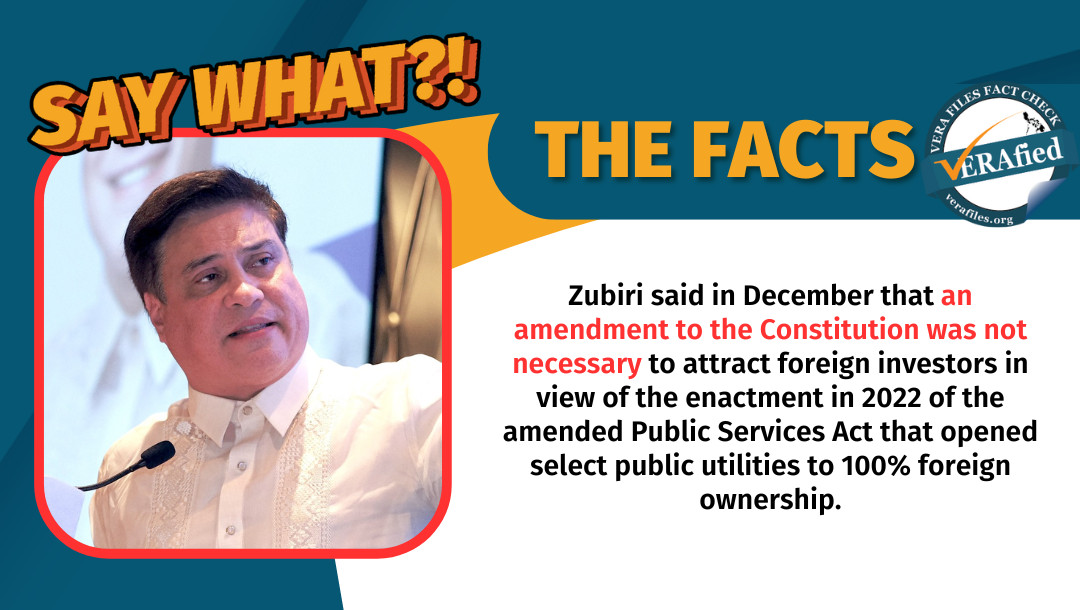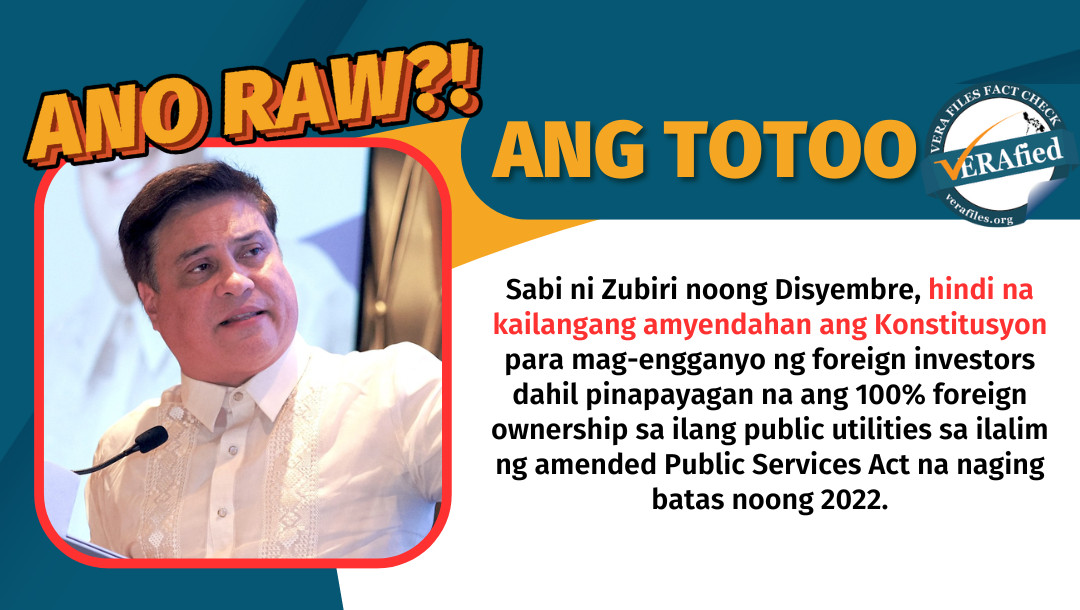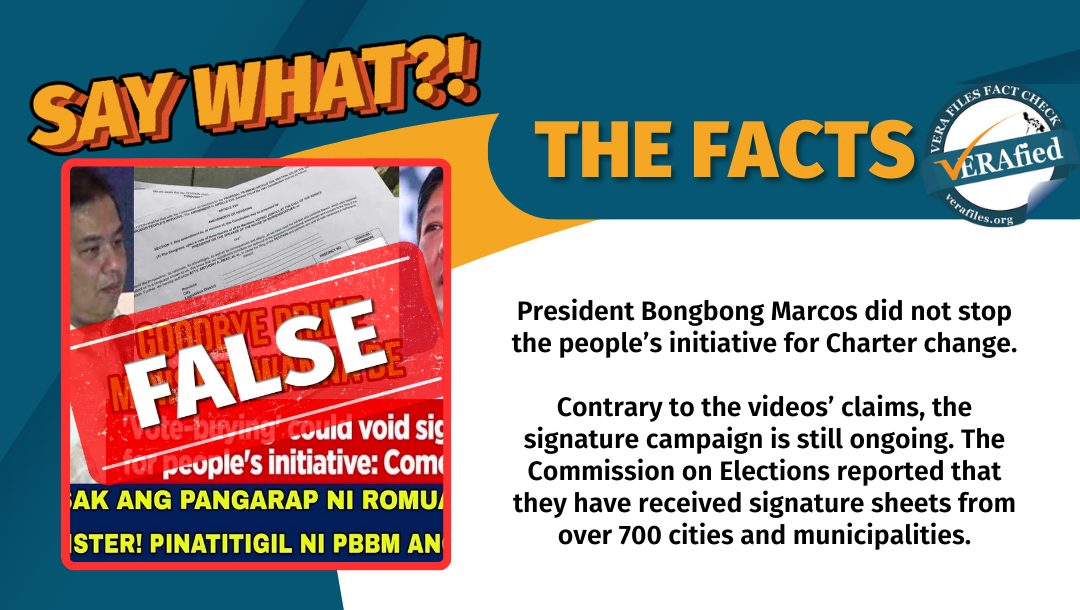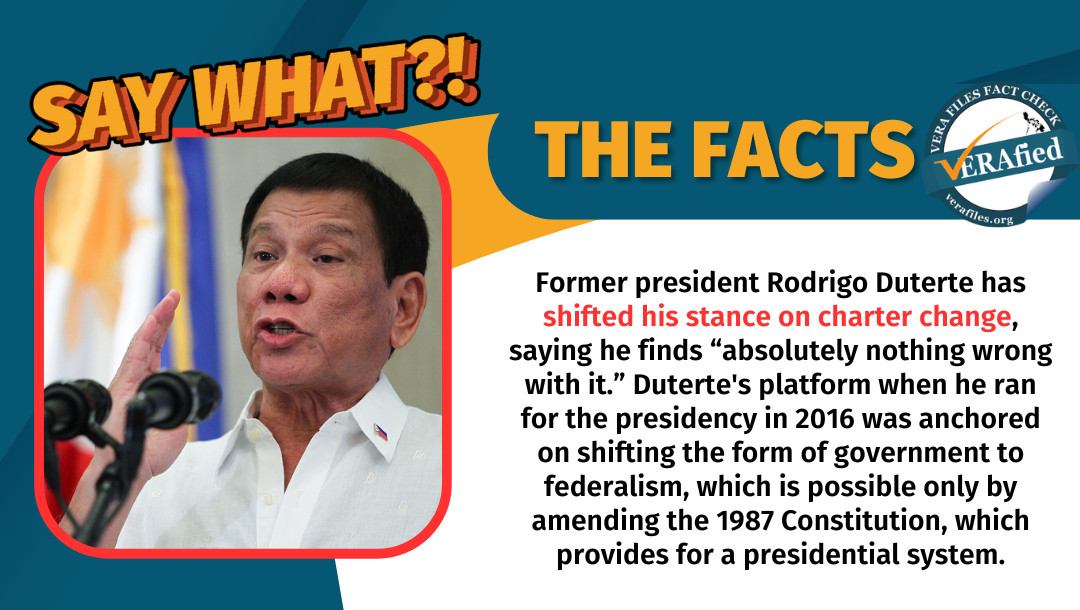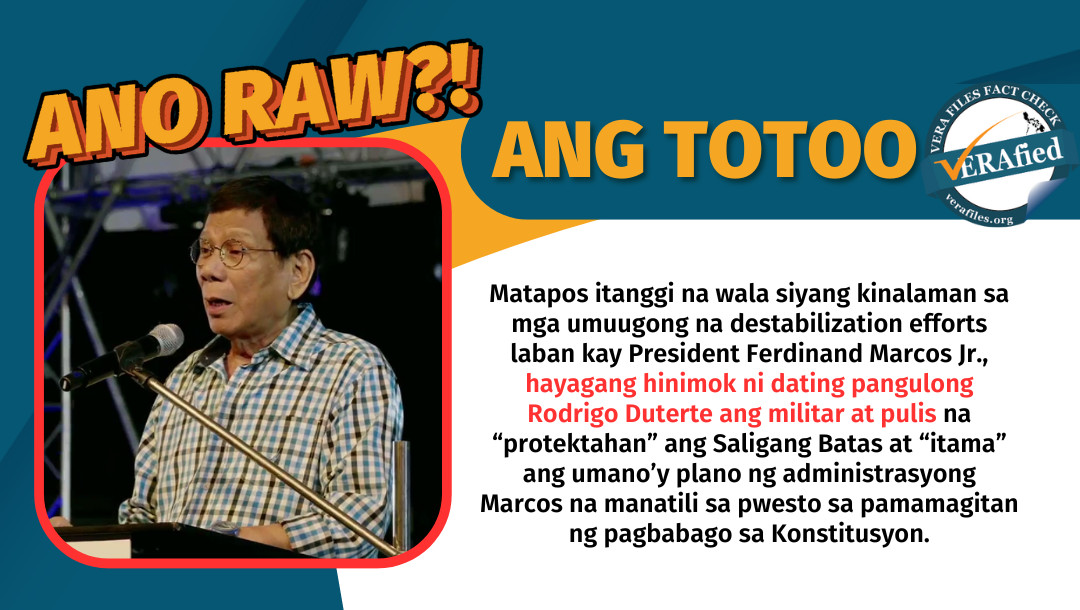We had not seen the system of checks and balances working strongly in the legislature until the Senate was threatened with dissolution early this year through a House of Representatives-backed people’s initiative to amend the 1987 Constitution.
Thanks to Sen. Imee Marcos, older sister of President Ferdinand Marcos Jr., for insisting on holding a public inquiry into the sinister move to force a joint voting of Congress on proposed Charter changes. The political maneuvering and other forms of deceit in the gathering of signatures for a supposed people’s initiative to bring about the desired constitutional amendments are now being exposed.
Questionable practices on the budget in the bicameral conference committee are coming out, such as the insertion of amounts and items in the General Appropriations Bill that were neither in the Senate nor House versions. Sen. Marcos also said that her electronic signature was used in the bicam report, which she had not scrutinized.
The hearing has also unmasked some of the individuals behind the people’s initiative and their maneuvers in a multimillion-peso public campaign ad and in producing the required signatures.
From the Senate probe, it also came out that the People’s Initiative for Modernization and Reform Action (PIRMA), the vehicle used in the signature-gathering drive, has been nonexistent since Feb. 10, 2004, when the Securities and Exchange Commission revoked its registration certificate.
Now we can understand why the congressional and other allies of House Speaker Ferdinand Martin Romualdez, a first cousin of the Marcoses, became agitated when the Senate Committee on Electoral Reforms and People’s Participation decided to pursue the probe.
On the day the Senate panel chaired by Marcos began the probe, some House leaders held a press conference asking the upper chamber to stop investigating the alleged signature-buying for a people’s initiative for Charter change. They said it would be a “waste of time,” claiming that the gathering of signatures had stopped.
A few days later, House Majority Leader Jose Manuel Dalipe challenged the senators to openly declare their individual stand on Charter change (Cha-cha) and ensure that the public was well-informed about their stance on the issue.
Some sort of word war ensued between the senators and representatives after Senate Majority Leader Joel Villanueva responded to Dalipe’s dare, saying, “Who is he?”
House Deputy Speakers David Suarez of Quezon and Robert Barbers of Surigao del Norte took up the cudgels for Dalipe, asking Villanueva to refrain from name-calling and undermining the congressmen.
Congress has an internal system of checks and balances. Its two chambers, the Senate and the House of Representatives, should be checking each other. A law cannot pass Congress unless both chambers approve it by a simple majority. Often, this check and balance takes a back seat, especially when a bill is certified as urgent by the president.
While the senators have been closely watching the activities of the House in relation to Charter change, Romualdez’s allies are offering the opposite. They dared the Senate to pass its version of the Resolution of Both Houses 6 (RBH 6), and they will readily approve it.
The Senate’s RBH 6 seeks to amend the Constitution by simply adding the phrase “as may be provided by law” in three provisions that restrict full foreign ownership in business, education and advertising. The House version calls for a hybrid constitutional convention to introduce the amendments. It had intended to hold the election of the constitutional convention delegates in October 2023, synchronized with the election of the barangay and Sangguniang Kabataan officials.
The insertion of some P26.7 billion for Ayuda sa Kapos ang Kita Program (AKAP) item in the 2024 budget is yet another underhanded tactic in the legislature that was exposed in the course of the hearings.
Last Thursday, Marcos said the senators were unaware of the insertion, saying that she and her fellow senators’ signatures were placed on the page of the then-proposed 2024 national budget, which contained the provisions for AKAP under the Department of Social Welfare and Development.
The DSWD is now headed by Rex Gatchalian, a former member of the House of Representatives.
Prior to the discovery of the P26.7-billion insertion in the DSWD budget, the Senate also revealed a P12-billion insertion in the budget of the Commission on Elections (Comelec) for activities, including the holding of a referendum. Later, Comelec Chairman George Garcia said that the P12-billion amount appeared as a partial restoration of the P17 billion that was cut from the agency’s original budget proposal.
Earlier, Sen. Marcos said some lump sum appropriations in the 2024 budget, such as the Assistance to Individuals in Crisis Situation (AICS) under the DSWD and Tulong Panghanapbuhay sa Ating Disadvantaged/Displaced Workers (TUPAD), were promised to local government units and beneficiaries in exchange for their signatures for the people’s initiative petition.
It would appear that House leaders have succeeded in making the 2024 GAA an election-year budget, and the Senate realized it only after its existence was threatened by a House-initiated people’s initiative. Better late than never, you may say.
How can we trust these politicians and their business cohorts behind Cha-cha, who resort to underhanded tactics to get what they want in the guise of economic development?
The views in this column are those of the author and do not necessarily reflect the views of VERA Files.
This column also appeared in The Manila Times.
